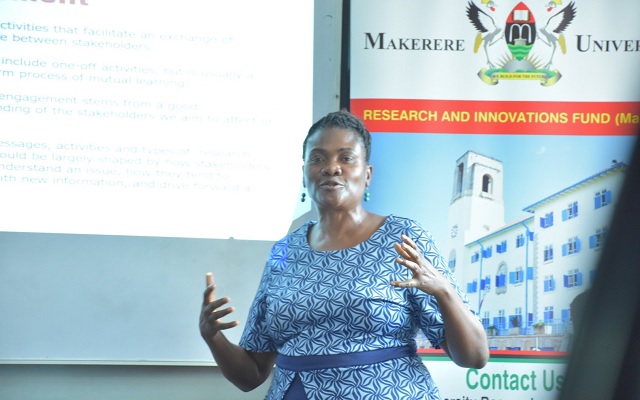
Kampala, Uganda | THE INDEPENDENT | With the global agenda shifting to the use of science to shape evidence-based national policies and strategies, researchers in Africa are concerned that the data generation speed doesn’t match the rate at which this evidence is being picked for use by the community.
Elizabeth Birabwa Aliro, a Senior Researcher at the Economic Policy Research Center (EPRC), says that government-run entities like the Uganda Bureau of Statistics-UBOS generate a lot of content that if paid attention to would help the country make development strides but policymakers don’t make sense of it to be able to use it.
Birabwa who was speaking to URN in an interview just after participating in a round-table discussion at the Evidence 2023, a conference that had researchers and policymakers from twenty African countries in attendance, said that at the Think- Tank they have resolved to work with selected technocrats each week to build their capacity on how data is collected and how it can be applied in making decisions.
She says this was after they took a study on evidence use and realized policymakers need to be engaged early enough if they’re to adopt whatever research outcomes. However, when she raised this at the meeting, several researchers deferred expressing fears of political interference. But, Birabwa said they will never take off if they sideline politicians.
On her part, Violet Murunga, a Research and Policy Analyst at the African Institute for Development Policy (AFIDEP) based in Kenya said that their research entity has worked with technocrats beyond giving them data to make policy decisions but worked with them to advocate for funding into development priorities. She cited Kenya where there is a law pushing for allocating 2% of their budget to research.
Meanwhile, In Uganda, the government has for the last four financial years been allocating 30 billion shillings each year to researchers at Makerere University money to come up with solutions to key development challenges under the Research and Innovations Fund.
But, already, there are concerns that some of the beneficiaries of this funding cannot translate their innovations into solutions that can be used in the country.
*****
URN
 The Independent Uganda: You get the Truth we Pay the Price
The Independent Uganda: You get the Truth we Pay the Price





